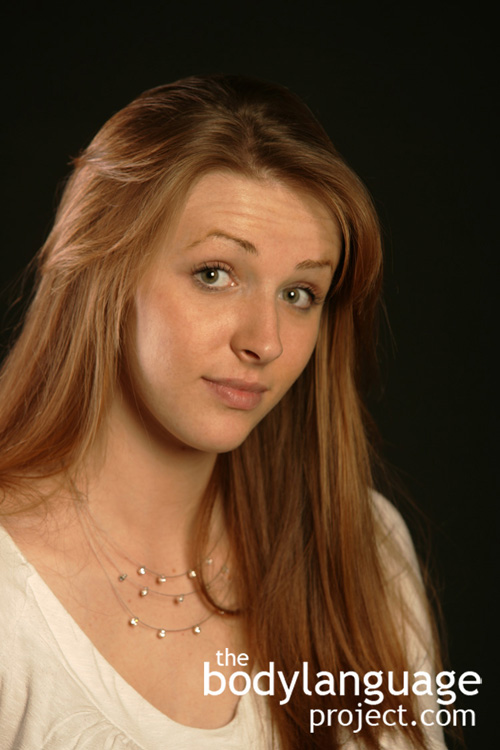The eyebrows are very active in conversation. They can furrow to show anger or be turned inward and down to show disgust or a crucial view. Even still, the eyebrows can be raised fully to express surprise or be singly raised and lower to indicate suspicion. One eyebrow raised and the other level or neutral is a widespread sign of skepticism or displeasure and is called the eyebrow cock but if done subtly with a slightly cocked head and a cheeky smile means “interesting”.
Disappointingly, very few actors have control over their eyebrows, and if you don’t believe me just watch for yourself. I’m not sure they could use their faces very efficiently even if they tried, as the use of eyebrows is not something that is easily consciously controlled. I have noticed that female television news anchors will flash away during most of their reports but men won’t. This is also the case with male actors who favour control, presumably to appear more dominant especially in lead roles.
Placement, size, and shape of the eyebrows also portray different meaning. Lower eyebrows appear more dominant whereas high eyebrows make for a more subordinate yet perpetually surprised look. Eyebrows that are turned in near the outside of the face also called “medially downturned” make the face appear more concerned or empathetic. Bushy eyebrows signal dominance, and thin brows remind us of children so appear more neotenous whereas the uni-brow where the eyebrow forms one single brow across both eyes appears archaic, unsophisticated and un-groomed.
The eyebrows also have a language all to themselves. The eyebrow raise, where the eyebrows come straight up and then back down in one motion, happens in speech to emphasis certain words, to punctuate a point or in accompaniment with questions. The eyebrows raise can also appear as a request for approval when unsure how our thoughts stand with others, or can even be meant as a measure to verify if what we have said is being understood. In this case, the eyebrows will come up and pause for a second and seek some sort of gesture of approval such as a head nod or vocal agreement before being lowered. If there is no approval, then we might see the “eyebrow hold” which is akin to the shrugging of the shoulders, indicating a lack of knowledge or even helplessness. Politicians and children do this often when they seek approval, it says “So, what do you think, have I don’t a good job?”
Other times the eyebrows will move almost continuously throughout a conversation when we really want to impress someone, flirt with them, or act particularly animated. If eyebrows are raised with a slight tilt of the head at the end of the sentence it is to check to see if the message was understood but if it is done with a slow raise of the head, it means disapproval saying “What you have just said, surprises me”. Disapproval is even stronger if the head is lowered with the lips pursed tightly accompanied by raised eyebrows. This signals a desire to end communication altogether.

